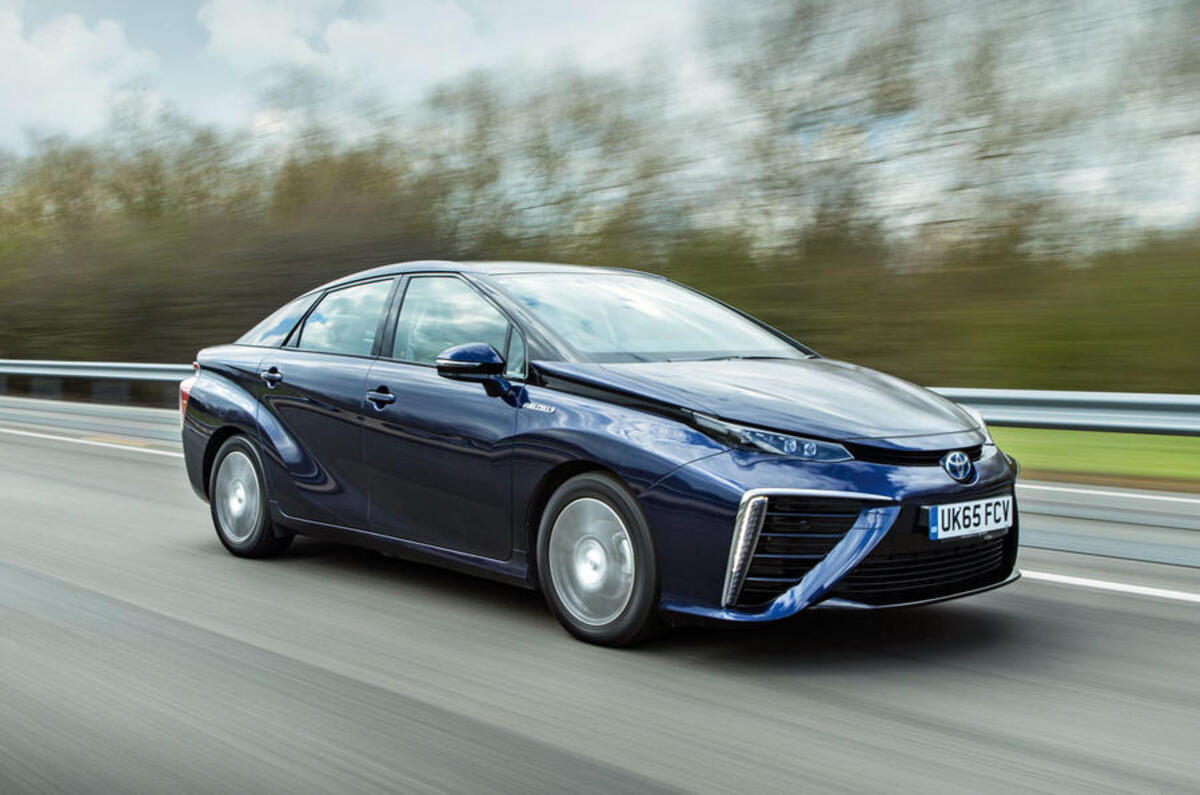Toyota and Lexus have announced plans for further electrification of their model ranges. The strategy includes a total of 10 pure electric models across the two brands' model ranges by the early 2020s.
By introducing hybrid, plug-in hybrid, pure electric and fuel-cell hydrogen powertrains in various models, Toyota and Lexus will offer electrified versions of all of their cars by 2025. This is the same target as announced by its main global competitor, the Volkswagen Group.
Toyota - one of the electrified vehicle pioneers with the Prius, which first went on sale in 1997 - also stated its intention to sell more than 5.5m electrified vehicles annually by 2030, including 1m zero-emissions vehicles. In 2016, Toyota sold 10.2m vehicles; based on this figure, just over half of its sales in 2030 would be electrified.
The firm is the latest in a long line of manufacturers in the last six months which has announced its long-term electrification plans. Volvo was the first to lay out its targets: every Volvo car launched from 2019 will have an electric motor. Jaguar Land Rover, Volkswagen Group, Mercedes and Mazda have all followed suit.
Toyota will start its pure electric vehicle sales in China first by 2022, before a “gradual introduction” to Japan, India, US and Europe.
At the Tokyo motor show in October, R&D chief Kiyotaka Ise said he expected to start rolling out a family of electric cars from 2020 – a timetable in line with Volkswagen’s ambitious plans to launch its family of electrified cars under the ID badge.
In part, Toyota's move has been forced by the Chinese government’s plans to set quotas of EV sales that manufacturers must hit, and there are ongoing rumours that it may launch a heavily modified CH-R crossover in China in 2019 to meet the short-term requirements there. However, in order to achieve its global EV goals it announced a partnership with Mazda and parts supplier Denso earlier this year.
Toyota also confirmed today that it hoped to commercialise solid-state batteries by the early 2020s, which would make it the first car maker to do so. Other manufacturers such as Volkswagen and Volvo have hinted that they won’t introduce solid-state batteries until at least 2025. The technology, which will eventually replace the lithium-ion batteries used today, is expected to be game-changing for electric vehicles, offering around 620 miles of range.
Meanwhile, Toyota and Panasonic announced last week that they will start a feasibility study aimed at producing the best prismatic battery in the automotive industry. Prismatic batteries are more akin to those cells used in smartphones, as opposed to the cylindrical lithium-ion cells more commonly used, and can potentially confer cost and weight savings.
The Japanese car company has also confirmed it will expand its fuel-cell line-up beyond the Toyota Mirai for both passenger and commercial vehicles, confirming its commitment to hydrogen alongside hybrids and pure electric models. By comparison, many manufacturers are choosing to focus on hybrids and pure electric models rather than invest in costly hydrogen vehicle development.
It will also continue growing its hybrid and plug-in hybrid line-up. For its hybrids, there will be a more powerful version of its Hybrid System II in some models. It added that “the development of simpler hybrid systems will be implemented in select models, as appropriate, to meet various customer needs”.




Join the debate
Add your comment
In the words of Alan Sugar
"Toyota will start its pure electric vehicle sales in China first by 2022, " so the once great Toyota who had a massive lead on battery use won't have a proper BEV in Europe for at least another 5 years. Product development/planning team - You're Fired!